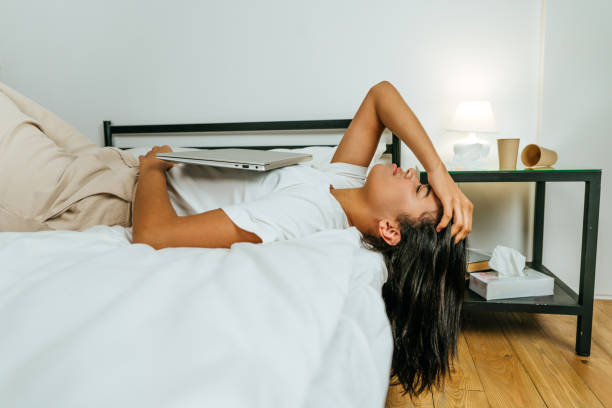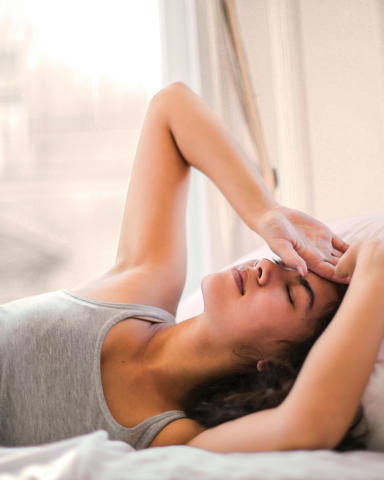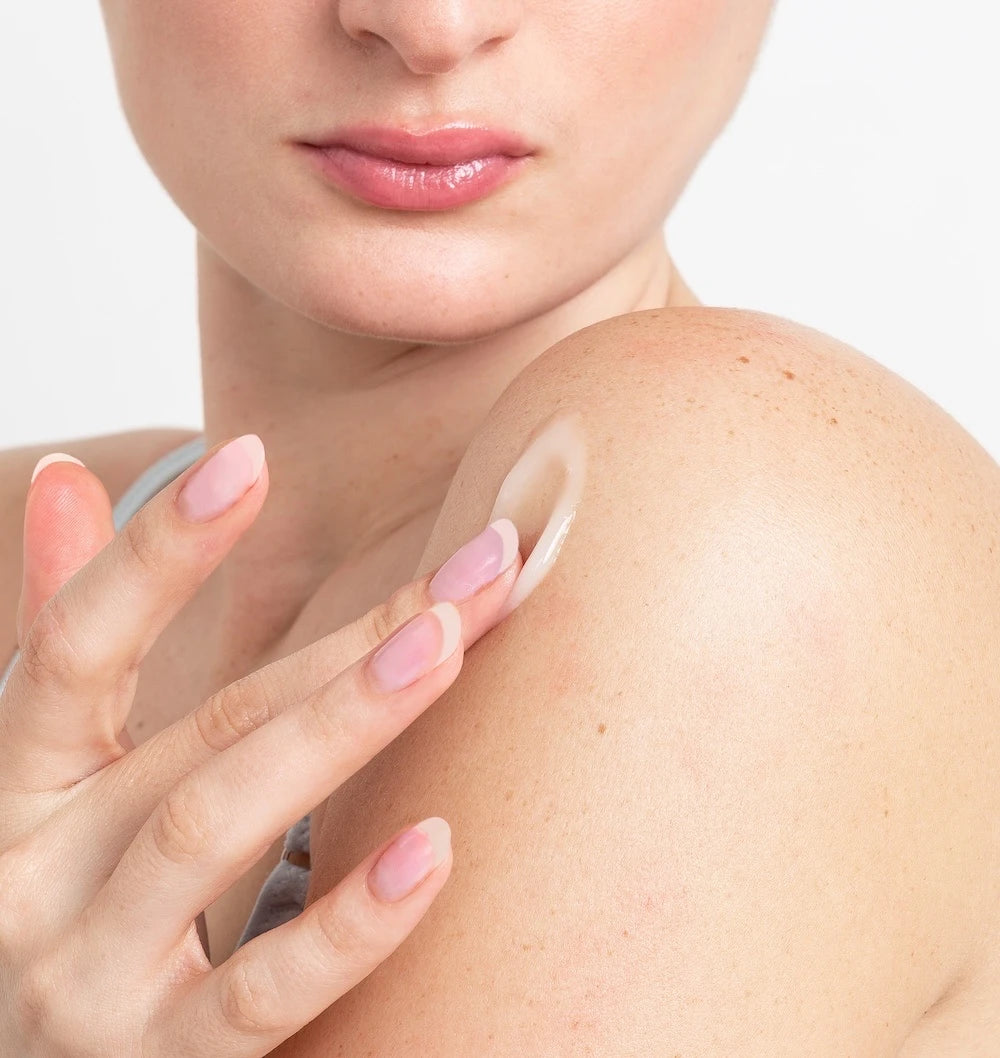Introduction
Ophthalmic migraine can be a disorienting and painful experience. Affecting around a quarter of people suffering from migraines, it is often preceded by visual disturbances called "aura". This article aims to give you natural and effective ways to prevent and relieve it.
Understanding ophthalmic migraine
What is ophthalmic migraine?
Ophthalmic migraine, also called migraine with aura, is a type of migraine characterized by visual symptoms that precede the pain. These symptoms may include flashes of light, flickering spots, or wavy lines in the field of vision. In some cases, the person may even experience temporary vision loss.
Symptoms of ophthalmic migraine
The symptoms of ophthalmic migraine go well beyond visual disturbances. Sufferers may feel throbbing or throbbing pain, usually on one side of the head. Sensitivity to light and sound is also common, as well as nausea and vomiting.
Causes and triggers of ophthalmic migraine
The triggering of an ophthalmic migraine is generally attributed to a combination of genetic and environmental factors. Stress, certain foods, insufficient sleep and hormonal changes can all contribute to triggering an attack.
The link between stress and ophthalmic migraine
Impact of stress on ophthalmic migraine
Stress is one of the most common triggers for ophthalmic migraines. Stress can cause muscle tension, especially in the neck and scalp, which can trigger a migraine attack.
Stress management techniques to prevent migraines
Effective stress management is a key step in preventing ophthalmic migraines. This may include relaxation techniques such as meditation, yoga, writing in a journal, or even simple walks in nature.
Relaxation techniques and pain relief
Meditation and yoga
These practices help promote relaxation and manage stress. Not only can they help reduce the frequency and intensity of migraines, but they can also improve overall quality of life.
Deep breathing techniques
Deep breathing can help reduce muscle tension and promote relaxation, which in turn can help relieve migraine pain.
Acupressure to relieve migraine
Acupressure, which involves applying pressure to specific points on the body, can help relieve migraine pain. Studies have shown that acupressure can be effective in reducing the frequency and severity of migraines.
Nutrition and physical activity
Food to prevent migraine
Certain foods and drinks can trigger migraines, such as chocolate, cheese and alcohol. It is therefore recommended to keep a food diary to identify trigger foods. Furthermore, a diet rich in magnesium can help prevent migraines, as this mineral plays a key role in the functioning of the nervous system.
Role of exercise in preventing migraines
Regular exercise can help reduce the frequency and intensity of migraines. Moderate-intensity activities like walking or cycling can be particularly beneficial. However, it is important to consult a doctor before starting a new exercise program.
Natural remedies for ophthalmic migraine
Medicinal plants
Certain herbs, such as ginger and feverfew, can help prevent and relieve migraines. Ginger can be consumed as a herbal tea, while feverfew can be taken as a dietary supplement.
Essential oils to soothe pain
Essential oils like lavender and peppermint can help relieve migraine pain when inhaled or applied to the skin. It is always important to dilute essential oils before using them on the skin.
Omri natural care
At Omri, we offer you targeted treatments, combining the benefits of essential oils and CBD, which could be an additional solution in the management of your ophthalmic migraines.
The Light Head Roller concentrated in soothing essential oils of peppermint and lavender, combined with CBD, helps to soften tension and feelings of discomfort in the level of the head and neck. From fleeting headaches to more stubborn migraines, as well as associated muscular tensions, it offers an immediate feeling of relief. Use it on stress points such as the forehead, temples, neck and shoulders.
Invigorating Chinese Balm, concentrated in essential oils of peppermint, rosemary, eucalyptus, cajeput and wintergreen, combined with CBD, this balm-gel with a texture amazing, helps to soften tension and feelings of discomfort in the head.
The importance of hydration and sleep
Adequate hydration and quality sleep can play a vital role in preventing migraines. A lack of water can trigger a migraine, as can disrupted or insufficient sleep.
Conclusion
Ophthalmic migraine can be a real challenge to overcome. However, with the right strategies, you can effectively manage and prevent your migraines. Stress management techniques, a healthy diet, natural remedies and a healthy lifestyle can all help reduce the frequency and intensity of your migraines. It is important to always consult a healthcare professional to discuss your symptoms and treatment.
FAQ
- What is an ophthalmic migraine?
An ophthalmic migraine is a migraine that is accompanied by visual disturbances, often temporary, which generally precede the pain of the migraine itself.
- What are the symptoms of an ophthalmic migraine?
Symptoms of an ophthalmic migraine include visual disturbances such as flashes of light, blind spots, wavy lines, or loss of vision, usually followed by a severe headache.
- How to relieve an ophthalmic migraine naturally?
There are several ways to relieve an ophthalmic migraine naturally, including resting in a dark, quiet environment, hydrating, practicing relaxation or meditation exercises, applying cold compresses to the the forehead, and the use of essential oils like lavender and peppermint.
- Are there drug treatments for ophthalmic migraine?
Yes, there are specific medications to treat migraines, including ophthalmic migraines. However, these medications are not suitable for everyone and may have side effects. It is important to discuss the appropriate treatment options for you with your doctor.
- Can aromatherapy help relieve ophthalmic migraine?
Yes, certain essential oils, such as peppermint and lavender, can help relieve eye migraines. However, it is important to use them correctly and follow the instructions of a healthcare professional.
- Can ophthalmic migraines be prevented?
While there is no surefire way to prevent ophthalmic migraines, some people find that managing stress, maintaining regular sleep, avoiding certain food triggers, and practicing Regular exercise can help reduce the frequency and severity of migraines.






